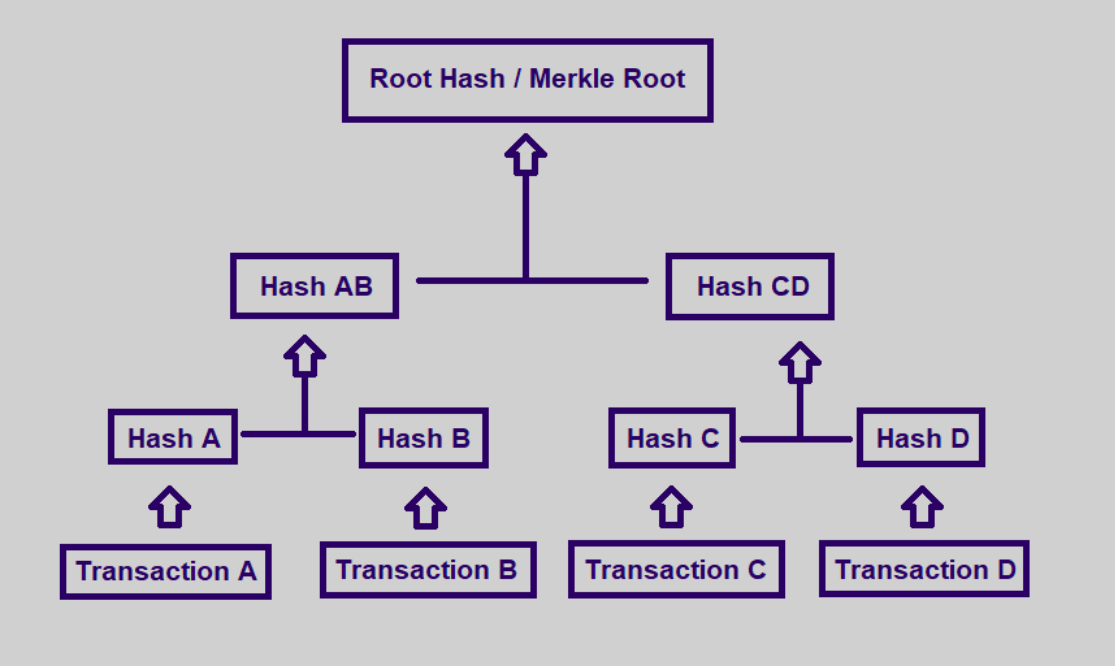Merkleization
The Merkle Tree
A Merkle Tree is a binary hash tree
- The values of the Leaves of the Merkle Tree are each a
Bytes32 result of a hash function applied to the serialized objects stored in the tree
- The value of any parent node in the Merkle Tree is the result of the same
hash function applied to a concatenation of the values of its two child nodes.
- The value of the Root node is the culmination of the process of hashing pairs of child nodes to reach a single node.
- Referred to in SSZ as
hash_tree_root

